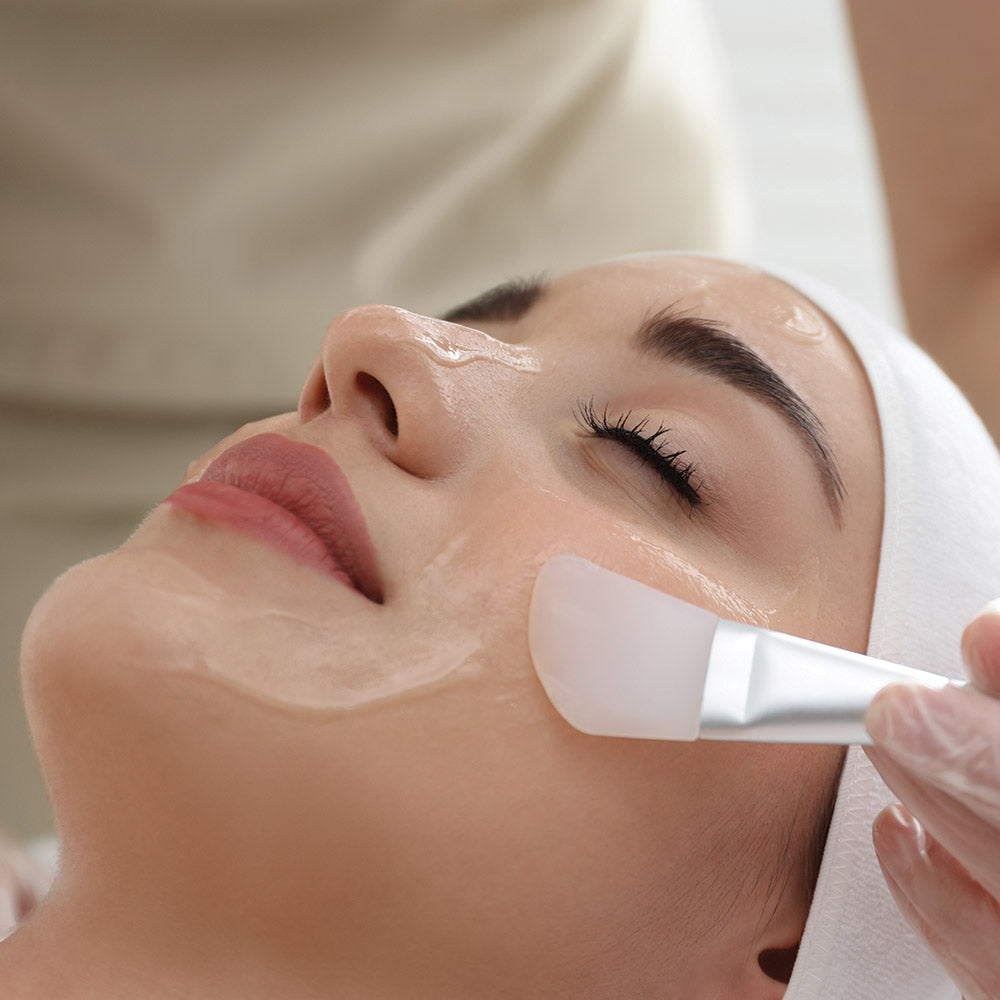
Chemical Peel Benefits
Posted by Terri Wojak on
Exfoliation
Exfoliating the skin to improve its appearance dates back to ancient Egyptians and is still popular today. Several methods using everything from mineral scrubs to chemicals have been used in different cultures to treat the skin.1 The cosmetic benefits of alpha hydroxy acids were discovered when sour milk, containing lactic acid, was used in baths to soften the skin. In the mid-1800s, the use of aggressive exfoliation methods was introduced to treat various skin conditions. These sometimes-extreme methods were successful, but at an expense. The more aggressive the treatment, the higher the risk of side effects and complications. Today, we see a surge in mild to moderate chemical peeling techniques as providers and clients look more toward progressive treatments as opposed to aggressive treatments.
Cellular Turnover
Cellular turnover is a natural process during which dead skin cells are released from the stratum corneum of the epidermis and are replaced with new cells from the basal layer of the epidermis. In healthy skin, cells turn over approximately every 28 days until the age of 30, after which this natural exfoliation process decreases at an estimated rate of about ten days per decade.2 This decrease in the skin’s natural exfoliation can contribute to fine lines, wrinkles, acne, and a dull, dry appearance.
It is well known that chemical peels exfoliate keratinized cells from the outer layers of skin. This occurs as acids breakdown protein structures, known as desmosomes, that anchor cells to each other. An equally important function of exfoliation is to create a controlled wound response. When skin responds to the drop in pH, it releases growth factors that trigger the production of new cells, including fibroblasts, resulting in a healthier appearance. Stimulating the rate of skin exfoliation in a controlled manner can reduce superficial imperfections while simultaneously building healthier-looking skin structure.
Benefits
Chemical peels are beneficial for the appearance of many skin conditions including aging, acne, hyperpigmentation, and even sensitive skin. Visible signs of aging skin are improved by increasing the rate of exfoliation and triggering the benefits of collagen production. Those with acne also benefit from the reduction of dead skin cells since they are one of the contributing factors to breakouts. The low pH of the acid also fights bacteria and reduces the build-up of oil. Hyperpigmentation is formed when melanocytes produce melanin to protect keratinocytes. Chemical peels help reduce the signs of hyperpigmentation by exfoliating stubborn melanin-filled cells. Sensitive skin is usually indicative of an impaired barrier. Chemical peels improve the effects of the barrier by getting rid of damaged cells and stimulating the benefits of the production of new healthy cells.
There are various levels of peeling including superficial, medium, and deep. Superficial peels effect the epidermis, medium-depth peels reach the papillary layer of the dermis, and deep peels reach the reticular layer of the dermis. Stronger isn’t always better, especially when it comes to peels. Many superficial peels, when performed as directed, have the same great benefit without the increased chance of side-effects. There is a lot to learn to be proficient in chemical peels including the properties of various acids, percentages, and pH. A thorough training on chemical peels is necessary to ensure optimal results and to reduce the chance of potential complications. When performed correctly, chemical peels offer great value to the appearance of all skin conditions.
- HJ Brody et al, A history of chemical peeling, Dermatologic Surgery, 26 (5), 405–409 (2000).
- MA Farage et al, Characteristics of the aging skin, Adv Wound Care (New Rochelle), 2(1), 5–10 (2013).
Share this post
- Tags: Great Skin Habits, problematic skin, Science, Skincare
